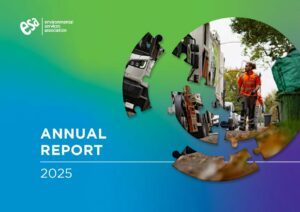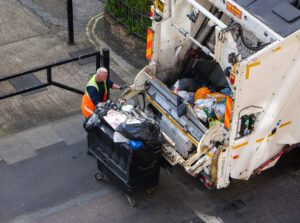New rules, which come in to force today (Monday February 12), will require all large new developments, including recycling and waste treatment facilities, to demonstrate how they will increase biodiversity by at least ten per cent as a condition of planning consent.
From today, if the development of a new facility would detrimentally impact a natural habitat, developers must show how they will create more, or better quality, natural habitat than existed before the development, supporting the delivery of the Government’s 25 Year Environment Plan to improve the environment within a generation.
Additional details about the new Biodiversity Net Gain (BNG) rules can be found here. The rules were originally due to come into force in November 2023 but were delayed until 2024.
The ESA ultimately supports the aims of BNG but has advised its members to prepare for additional costs and lengthier timescales associated with determining planning applications for new recycling and waste treatment infrastructure.
Developers across the industry will now need to prepare BNG plans as part of planning applications for large developments and the ESA believes the assessment of these plans is likely to put additional pressure on local authority planning teams – potentially delaying determination.
According to Office for National Statistics (ONS) data, as of 2021, there were 7,000 active businesses in the recycling and waste treatment sector operating from more than 9,000 sites, so the sector has a large estate holding and land footprint – particularly at larger sites such as landfill.
Uniquely, the new BNG rules also create opportunities for operators of capped and closed landfill sites to generate biodiversity units through habitat creation on these sites, which in turn could be used to offset their own developments elsewhere or sold to third parties to support them in fulfilling their BNG obligations.
ESA members are committed to protecting nature and to leading biodiversity best practice in the industry. The ESA established a Biodiversity Working Group in 2021 which subsequently published a Biodiversity Best Practice Guide for the recycling and waste treatment sector in 2022 and this was supported by a short film.
Additionally, in 2023, the ESA published a Nature Positive Toolkit designed to provide a standardised process for recycling and waste management operators to follow to support a Nature Positive future. The toolkit was commissioned by the ESA and produced jointly by independent expert consultants, Mott Macdonald and WSP. 1
These documents will help ESA members, and the wider sector, to better understand and mitigate their biodiversity impacts, not just from planning, but from all operations. The ESA will shortly publish additional guidance related specifically to BNG.
Environment & Sustainable Development Lead at SUEZ, and Chair of the ESA’s Biodiversity Working Group, Leigh Broadhurst, said: “Conserving precious resources and, by consequence, minimising the destruction of habitats from virgin material extraction, is at the heart of what the recycling and waste management sector does. However, our operations are not without their own impacts on nature and the development of critical infrastructure should not come at the unmitigated destruction of habitats and nature.
That is why, alongside our comprehensive Biodiversity Best Practice work, the ESA supports the principles of Biodiversity Net Gain which offers further opportunity for our sector to demonstrate Nature Positive leadership.”




